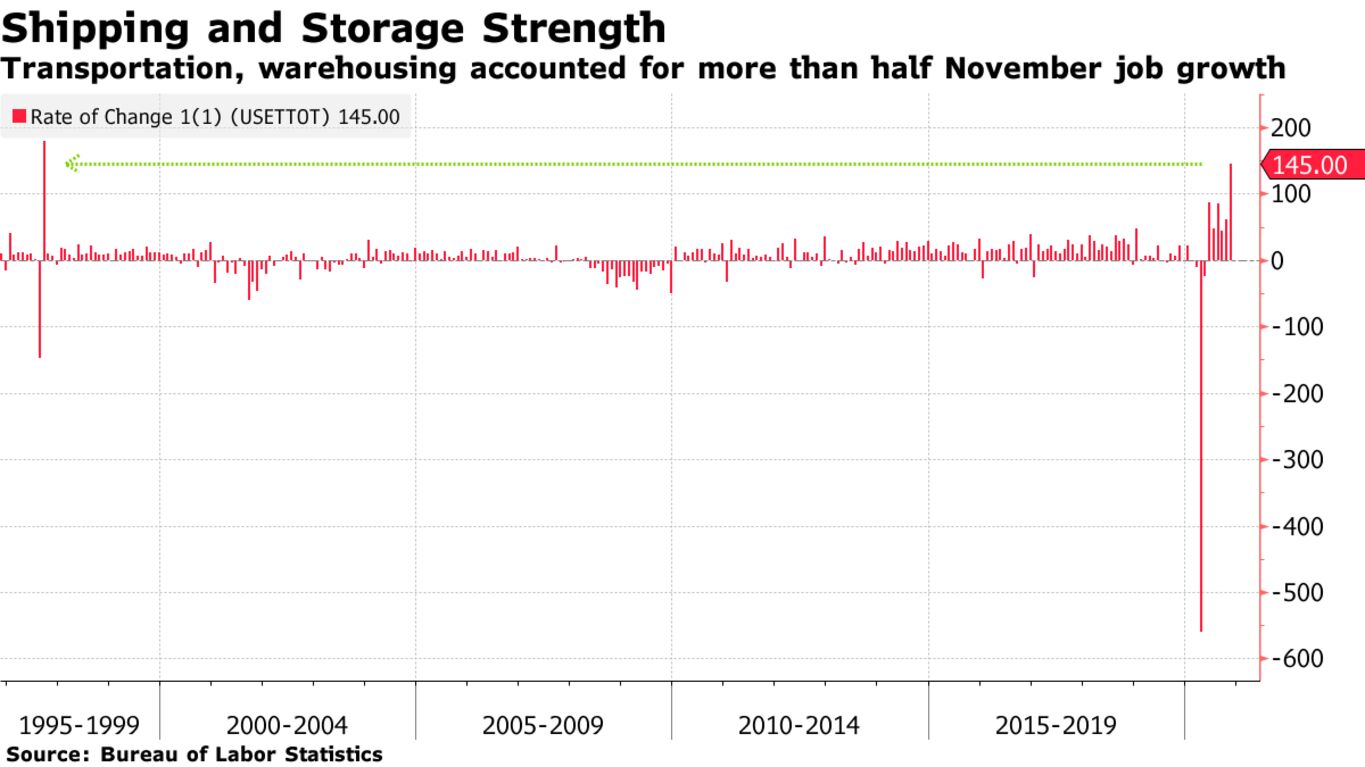Resurgent coronavirus infections are putting a chill on U.S. job creation, manufacturing in China is gaining pace and the final stages of Brexit negotiations are complicating the U.K.’s recovery prospects. Here are some of the charts that appeared on Bloomberg this week on the latest developments in the global economy:
U.S.

Surging payroll growth in the transportation and warehousing sector — the most since 1997 — accounted for more than half of total U.S. job gains in November, according to the government’s monthly employment report that proved disappointing. Total payrolls rose by 245,000 during the month, well short of estimates, and hiring was concentrated in fewer industries as the pandemic continued to disrupt.
Fiscal Rescue
Pandemic spending left U.S. with biggest budget deficit since World War II
Source: Congressional Budget Office, Sept. 2020
President-elect Joe Biden announced his economic team that will be charged with keeping the recovery on track, while balancing the need for more fiscal stimulus and a rapidly expanding budget shortfall.
Europe
Economic Blow
WTO trading terms would add to the scarring already inflicted by the virus
Source: Bloomberg Economics
Note: 2019 = 100
With the U.K. economy suffering more from the coronavirus than most advanced nations, the stakes couldn’t be higher as Brexit trade negotiations enter their endgame.
Out of Reach
First-time buyers are now paying almost $600,000 to live in London
Source: Nationwide Building Society
As with economies everywhere, the U.K. has suffered a deep slump because of the virus. But the housing market, juiced in part by a sales-tax cut, is in a mini-boom, with demand and prices surging. That’s proving an issue for prospective first-time buyers, especially in London.
Too Much Negativity
Consumer prices are now falling across much of the euro zone
Source: Eurostat
Note: Data for November, except Austria (October)
Falling consumer prices can be found across the euro area, but in some quarters it’s the fear of steep and entrenched declines — a deflationary trap that drags wages and ultimately brings the whole economy down — that has people worried most.
Asia

An official gauge of activity in China’s manufacturing sector rose faster that expected, suggesting the economy’s recovery is gathering pace.
London Calling
Nearly 60,000 BNO passports for Hong Kong residents were approved in October
Source: U.K. government
The U.K. is granting the most special travel documents to Hong Kong residents since the 1997 handover, bolstering predictions of a mass exodus as China tightens its grip over the former British colony.
